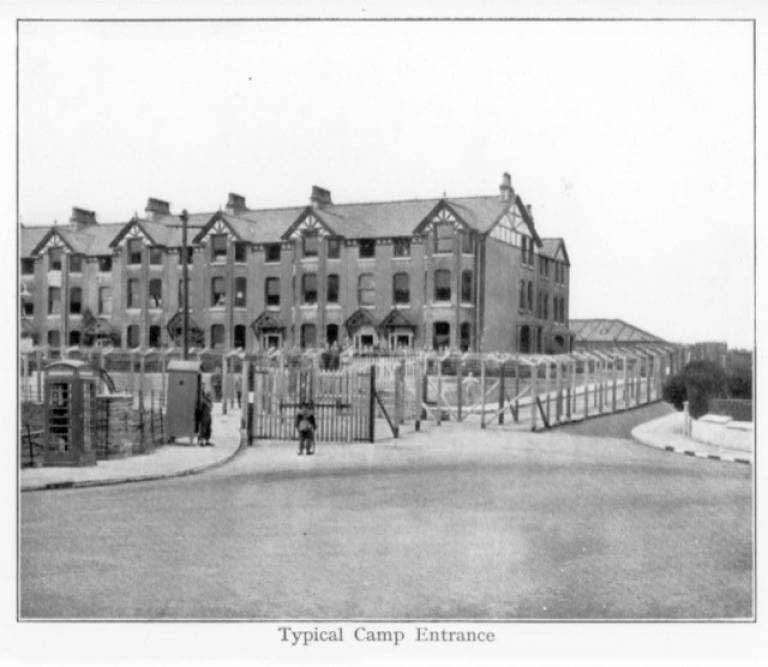Approaching the History of Internment - Call for Papers
12 September 2019
Deadline: 10 October 2019. Conference: 16-18 March 2020.

A firestorm of protest was ignited on 17 June 2019 when Representative Alexandria Ocasio-Cortez, Democrat of New York (United States House of Representatives), posted an Instagram video concerning 'detention camps' on the southern U.S. border and used the term 'concentration camps.' Representative Liz Cheney, Republican of Wyoming, immediately upbraided her for maliciously appropriating a Holocaust term, and countless others followed suit in denouncing Ocasio-Cortez, including the charge of antisemitism. The United States Holocaust Memorial Museum (USHMM) issued a statement on 24 June 2019, condemning the use of Holocaust analogies outright, widely understood to demean Ocasio-Cortez. In the wake of that proclamation, over one hundred world-leading historians of the Holocaust sent ‘An Open Letter to the Director of the USHMM.’ While affirming their overall support for the Museum, the signers articulated a harsh rebuke to its administration, imploring it to ’reverse its position on careful historical analysis and comparison.’ Conflicts such as this will most likely continue and fester, particularly as the United States and Britain increasingly seek to appear ‘tough’ on migrants under President Trump and Prime Minister Johnson potentially in future.
The use of 'internment' as a matter of state policy, especially as it relates to migratory movements, is nothing new. The phenomena, however, has lent itself to a wide spectrum of behaviours, some of which have resulted in inhumane treatment and callousness toward those seeking safety through relocation across national boundaries. From the perspective of state authorities, especially during wartime, internment is often a reaction to apparently hostile incursions and purported internal threats.
Two of the better-known cases of internment arise from the Second World War: the treatment of Japanese Americans by the United States and that of Jewish refugees in the United Kingdom. We also are aware of internment outside of wartime contexts. In On the Eve: The Jews of Europe before the Second World War (2012), Bernard Wasserstein asserts that "all over the continent" by January 1939, "Jews who had been evicted from their homes and homelands . . . were forced into temporary accommodation in so-called 'camps.' Sometimes, as in Germany, these were prisons where they were subjected to slave labour and torture. Elsewhere, as in France, Poland, or the Netherlands, they were places of internment [emphasis added] designated for refugees, illegal immigrants, or political undesirables."
This conference seeks to shed further light on the history of internment explored by Wasserstein and others. In particular, we shall examine the policy of mass internment, introduced in the United Kingdom in May 1940, and the exceptional debate that was held in the House of Commons on 10 July 1940. The aim is to reflect on the policy and impact of the mass internment of 'enemy aliens' during the Second World War, to examine contemporary policies and detention in the UK in the twenty-first century, and to look beyond these specific cases at other examples of internment—illuminated in historical and comparative contexts.
Proposals for papers are invited from postgraduate (graduate) students, scholars (across the disciplines), independent researchers and professionals involved in continuing detention policy issues and might consider topics including, but not limited to:
- Personal accounts of internment, historical and contemporary
- Education in internment
- Art and internment
- The impact of internment on internees and their families
- The public responses to internment
- The role of professional bodies in respect of internees before, during and subsequent to the Second World War (e.g. Society for the Protection of Science and Learning, the British Federation of Women Graduates, British Dental Association, etc.)
- The impact of internment on work after release from detention and post war
- Policies on 'asylum' from the early 20th century to the present
- Hostile environment policy 2012
- Indefinite detention in the UK in 2020
- Wartime deportation of enemy aliens to Australia and Canada
- The question of antisemitism and racism in regard to internees
- Uses of history in challenging human rights abuses
- Statelessness
- The engagement of corporations in 'security'
Suggestions for panel discussions are welcome but should not have more than two participants from the same institution. The invited keynote speakers, to be confirmed, include Emeritus Professor Bernard Wasserstein, University of Chicago, and Tine Destrooper, Ghent University. Abstracts of no more than 250 words and a short biography of less than 100 words should be sent to internmentconference2020@gmail.com by 10 October 2019.
ORGANISERS
Institute of Advanced Studies, University College London
René Cassin: the Jewish voice for human rights
Second Generation Network
Remembering Eleanor Rathbone
The Wiener Library for the Study of Holocaust & Genocide
 Close
Close

